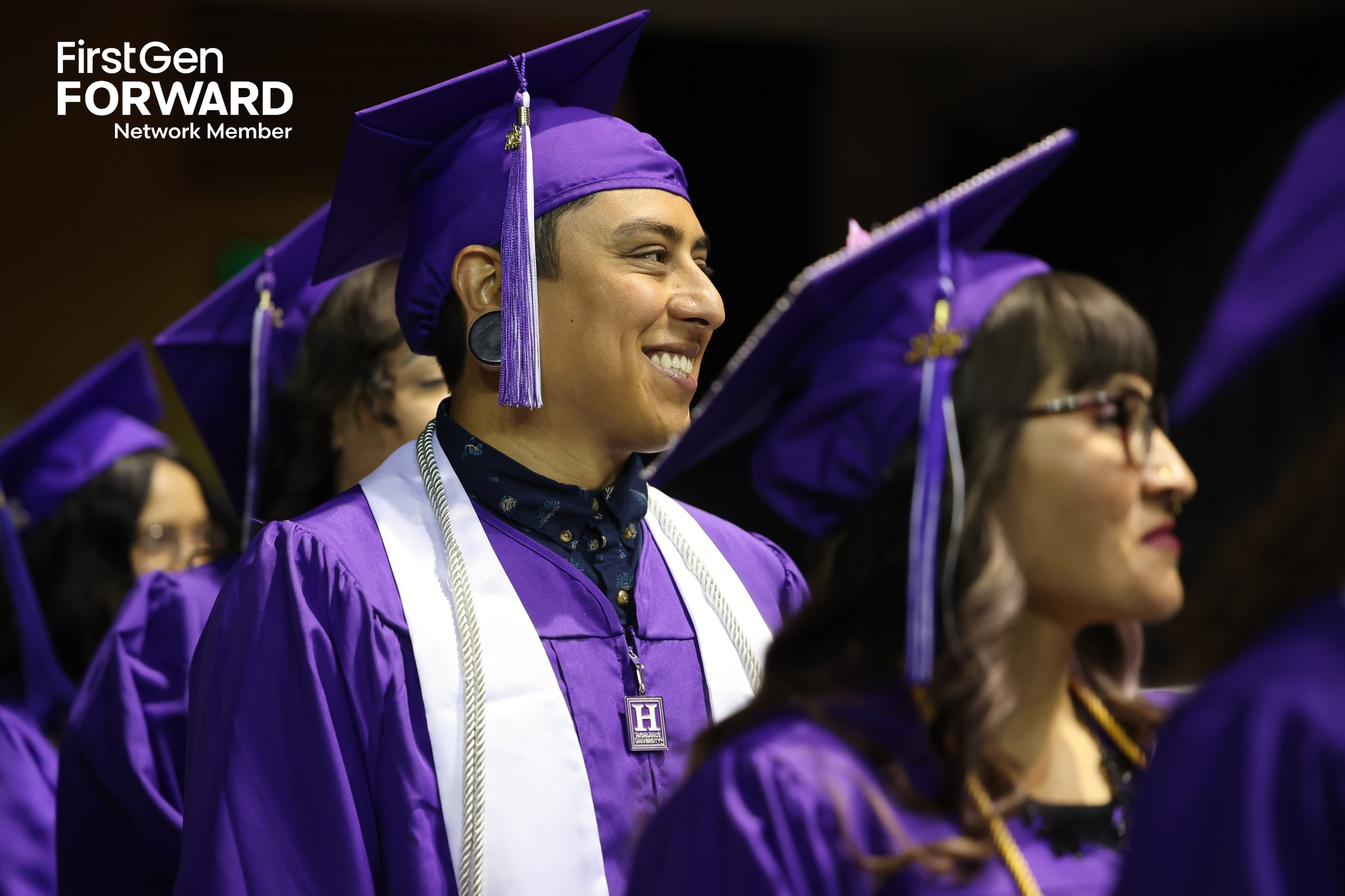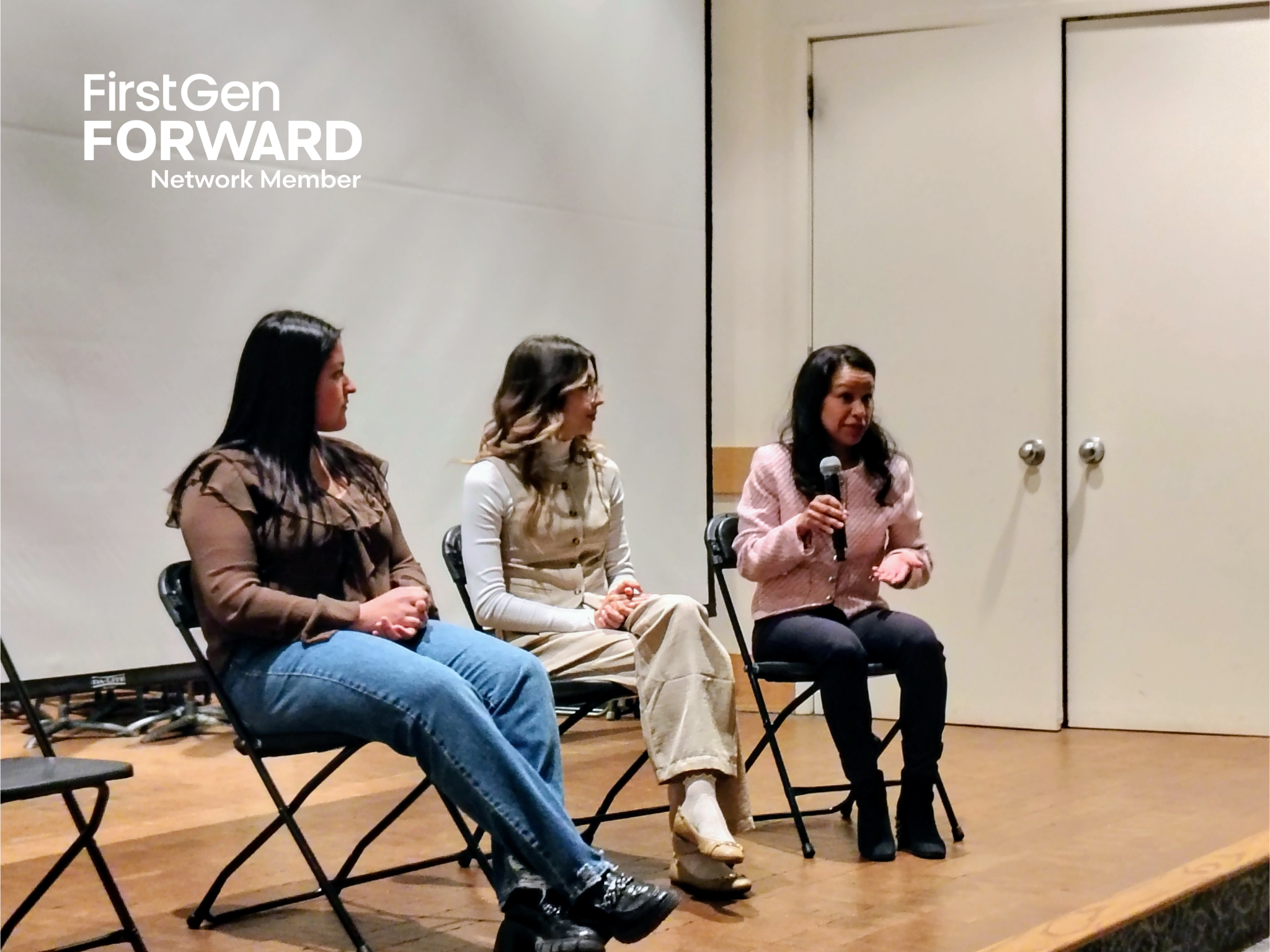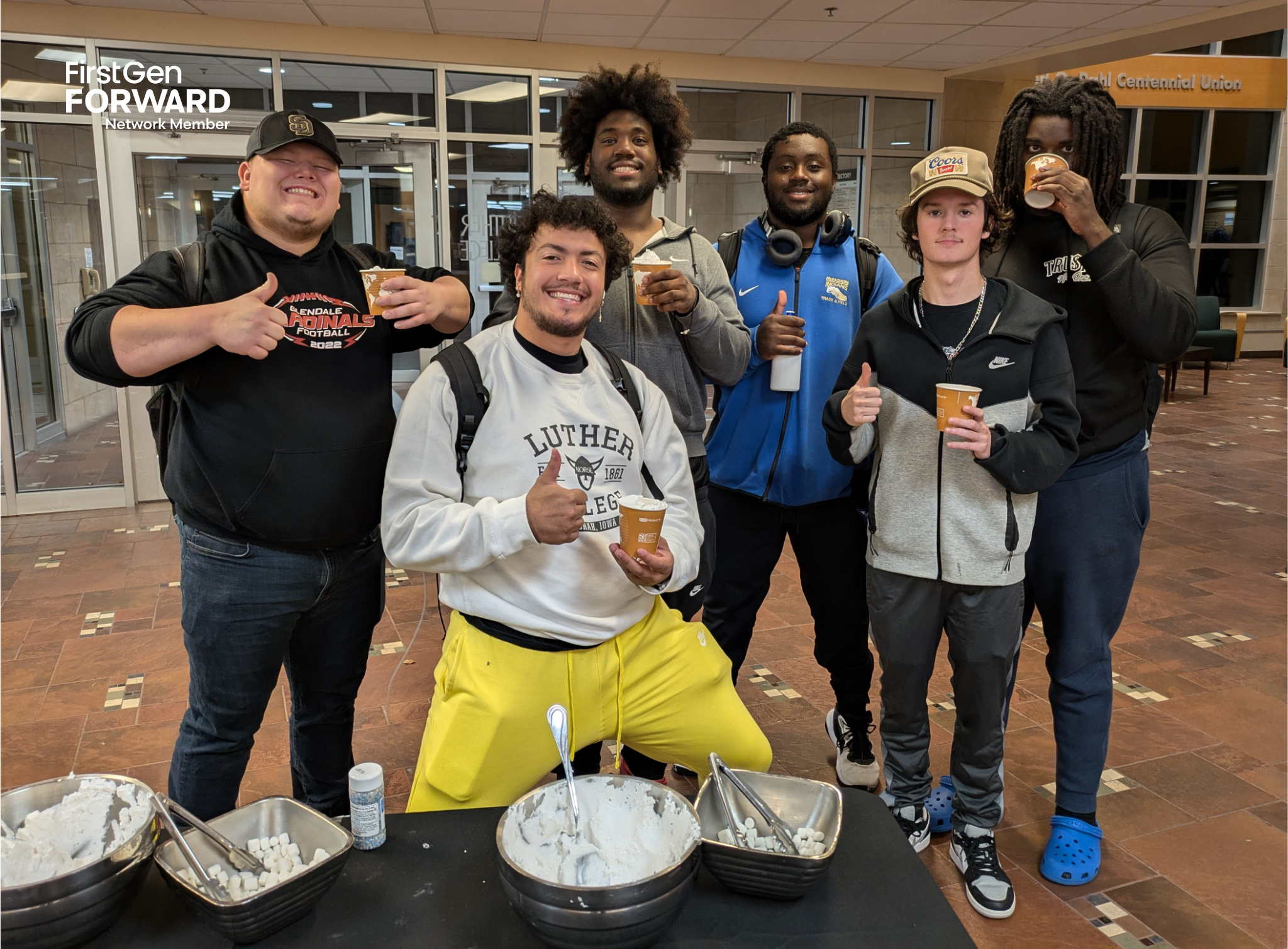This Is Why We Do the Work
To truly understand the intent behind our programs at New Mexico Highlands University, it's first important to know why this work is personal to me. New Mexico Highlands University is my alma mater, and I currently serve as the Director of Health Education and Wellness. I'm also a first-generation college graduate, shaped by the systems I now work to strengthen. Before discussing strategies, outcomes, or services, I want to share why I believe in this institution and have dedicated myself to uplifting the students who walk onto our campus. My story is woven into this university's fabric, and through that lens, I've come to value the power of access, equity, and belonging in higher education.
A Legacy of Resilience
My connection to New Mexico Highlands University began long before I stepped on campus. After losing her husband in a tragic car accident, my dad's mother raised three sons on her own while pursuing a master's degree from Highlands. She became a 5th-grade teacher and later became the first female principal at West Las Vegas Schools. Her story taught me that education could be a turning point. On my mom's side, the story is equally shaped by resilience. My mother lost her mom during childbirth and was raised by her tío and tía. My adopted grandfather, a custodian at local schools with no formal education, became the sole provider for a family of ten.
My parents met in high school, married at 19, and began working at Levi Strauss in Albuquerque. Neither went to college, but they always believed I could. My dad would say, "A degree is something no one can ever take away from you." But more than anything, I grew up watching them work hard every single day. My mother, a skilled seamstress, and my father, a laborer, rarely took time for themselves. Their hands were worn, their days long, and their sacrifices constant. They didn't have much, but they gave everything they could.
For me, the driving force wasn't just getting a degree—it was making my mom proud, showing her that everything she endured had meaning. And even now, it's their struggles that continue to motivate me. I carry their work ethic with me, and I push myself because I want to build a better life, not just for myself, but in honor of the life they worked so hard to give me.
I have spoken with thousands of students throughout my professional career and often hear parallel stories—stories of parents who worked long hours in service jobs, of sacrifices made quietly, and of students carrying the weight of those dreams on their backs. My story is not unique—and that's exactly why I tell it. It connects me to the students I serve and reminds me that generational perseverance is powerful. It's what drives so many of us to keep going.
Finding My Way at Highlands
My family eventually moved back to Las Vegas, New Mexico, where my parents were raised and where Highlands' main campus sits. I completed my K–12 education at the West Las Vegas School District, a system shaped by the same challenges that face much of our state. As a native New Mexican, I was a byproduct of an education system known more for its barriers than its outcomes. I was underprepared in many ways, but I still had a chance, and that chance was Highlands.
Throughout school, I was often compared to my older sister, the class valedictorian, who would go on to earn both her undergraduate and graduate degrees from Highlands. She was focused, self-disciplined, and everything I thought I wasn't. I admired her deeply, even if I never said it. But those comparisons didn't inspire me—they overwhelmed me. I began to withdraw, convinced that if I tried and failed, it would only prove I wasn't enough.
Still, Highlands opened a door. It didn't matter that I was underprepared—it mattered that I showed up. And once I did, I started to see that where I came from wasn't a disadvantage. It was a foundation. A reminder that potential doesn't always look polished at first, but it's still there, ready to grow when someone believes in it.

Although I didn't fully understand what it meant to be a "first-generation student" at the time, I knew I had people who supported me. I became part of the TRIO Student Support Services program, though I didn't grasp its full impact right away. What I did know was that I had an advisor—now a colleague—who checked in with me regularly, encouraged me to grow, and introduced me to opportunities I'd never considered. TRIO gave me a sense of structure and a feeling of belonging. It helped me navigate the unknowns of college life and connected me to a community of students who, like me, were the first in their families to walk this path. Looking back, TRIO wasn't just a program—it was a foundation.
Finding My Place Through Scholarship
I've always been a people person. Even before I knew what I wanted to do with my life, I was endlessly fascinated by human motivation and behavior. I wanted to understand why people did what they did—what made them thrive, struggle, connect, or shut down. So when it came time to declare a major, I chose Psychology. I had no idea what else to explore, and honestly, that's what Highlands gave me—the space to explore myself.
I distinctly remember sitting in Dr. Maura Pilloti's Introduction to Psychology course. It was a survey class, but it felt like an invitation into a world I had unknowingly been craving. I was hooked. I was asking questions, answering them, staying up late reading—and not just for the grade (though I wanted that too). I was genuinely entrenched. Dr. Pilloti took notice. One day, she invited me to breakfast with her and her graduate students conducting research in her lab. That invitation changed the trajectory of my life.
It was there that I met Salif Mahamane, a graduate student who introduced me to the world of research. I didn't even know undergraduate research was a thing, but by the end of my sophomore year, I was presenting at national conferences, contributing to real studies, and getting recognized for it. The power of mentorship shaped my passions, and from an early age, I wanted to give back. I became a student mentor, active in campus life, helping to shape the very community that was shaping me. This part of my life transformed me. It made me realize that I could be more than just a participant in the system—I could be a part of changing it.
An Asset-Based Lens on Student Success
Through graduate school, I took on leadership roles as a mentor and program facilitator. Those experiences helped me understand the unique barriers first-generation students face: the uncertainty, the impostor syndrome, and the unspoken pressure to figure it all out alone. I had lived it—and now I could help others navigate it.
So I poured my insights into practice—designing mentorship models, developing first-year experience initiatives, and building mental health programs centered on equity, access, and care. In my professional life, my goal was to help change the lives of students who resembled me.
My journey is one example of the power of an asset-based approach—a way of seeing students not by what they lack but by what they bring. This mindset centers the lived strengths of first-generation, Latinx, rural, and historically marginalized students. It reframes cultural resilience, bilingualism, familial responsibility, adaptability, and community orientation as strategic assets, not obstacles to overcome.
At Highlands, I learned that my ability to move between cultures, adapt, and hold space for both tradition and change wasn't something to suppress—it was something to lead with. The asset-based approach reminded me that my story wasn't a detour; it was the foundation.
Opportunity Meets Equity
Today, Highlands continues to open doors for students across Northern New Mexico and beyond. As the only four-year public university in the state's northern half, Highlands offers bachelor's and master's degrees across multiple campuses in Las Vegas, Santa Fe, Rio Rancho, Farmington, and Albuquerque. And as an open enrollment institution, we welcome all students who meet basic admissions requirements, making college a reality for those who might not otherwise see it as possible.
Over half of our students—55%—identify as first-generation. That's not just a number; it's a responsibility.
Learning Through the First-Gen Forward Network
While we've always served a high number of first-generation students, joining the First-Gen Forward Network challenged us to do more than serve—it invited us to reflect. It pushed us to become better informed about our students' lived experiences, ask harder questions, and reimagine what it means to truly support them.
What we learned reaffirmed our commitment to equity and to building a campus environment where first-generation students don't just attend college, but thrive in it.
Meeting the Moment with Intentional Support
At Highlands, we've worked intentionally to create strong, student-centered support systems that reflect the real needs of our students, especially those from historically excluded, rural, and first-generation backgrounds. These efforts are not just institutional priorities—they are expressions of who we are as a community.
Our student success infrastructure includes:
1. 1-on-1 Student Success Coaching – Offering personalized guidance that helps students navigate the hidden curriculum of college life, build confidence, and set long-term goals.
2. Writing Centers – Supporting students as they strengthen academic writing in a welcoming, no-judgment space where language and culture are seen as assets, not barriers.
3. Career Services & Professional Development – Preparing students for life after college—especially those without built-in professional networks—through mentorship, resume support, and job connections.
4. STEM-Focused Tutoring – Addressing systemic inequities in science and math by providing targeted academic help and faculty mentorship in fields where first-gen students are underrepresented.
5. Robust Mental Health Services – Offering trauma-informed, identity-affirming support to students balancing academics, finances, caregiving, and personal struggles.
6. First-Year Experience Programming – Creating early pathways to belonging through mentorship, culturally relevant coursework, and skill-building experiences that affirm who students are and where they come from.
These programs are shaped by what the world tells us about institutions like ours: that rural-serving, Hispanic-serving, and open-access universities are often the first point of contact between higher education and historically marginalized communities. At Highlands, we see that not as a challenge, but as a strategic opportunity to lead with an asset-based mindset.
Why It Matters
Highlands is more than a university. It's a space where generational cycles are broken, where students are seen and supported, and where education transforms families and communities. Experiences like mine continue to resonate in the lives of the students we serve today. Many arrive at Highlands carrying unspoken comparisons, quiet doubts, or the weight of being the "first." Like I once did, they may not fully understand what it means to be a first-generation college student, but they know what it feels like to question whether they belong. They come seeking direction, support, and space to figure out who they are beyond expectations.
That's why programs that are built to remove barriers for first-gen students, caring faculty, and opportunities for meaningful engagement are so essential. When students see themselves reflected in someone who has walked a similar path, the idea of success shifts from distant to possible. My story is not an exception—it's a shared experience that continues to shape how we meet our students with empathy, encouragement, and unwavering belief in their potential.
I know this because I've lived it. Highlands gave me a path forward, and I've committed my life to opening doors for others in the same way.
When we lead with an asset-based approach, we don't just help students succeed—we change the story of who belongs in higher education.
For more information on New Mexico Highlands University's approach, please visit their website here.


